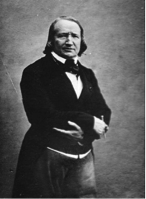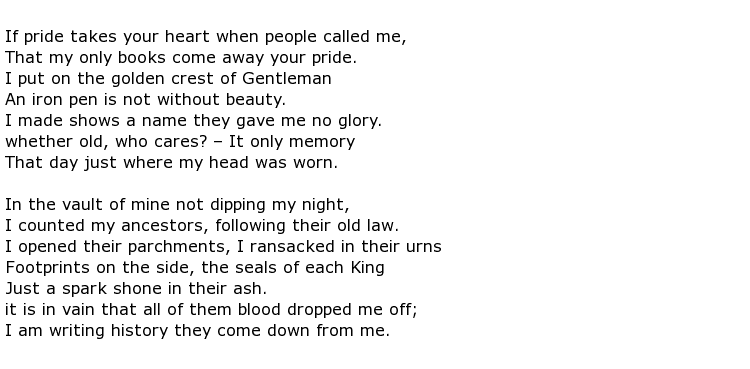 Alfred, the Comte de Vigny, was a 19th century French poet who was at the forefront of the Romantic movement in arts and literature in his country. He was also a novelist, playwright and translator of many of Shakespeare’s works into French. At the age of seventeen his noble background enabled him to be appointed as an army second lieutenant in the privileged King’s Guard (the Maison du Roi ).
Alfred, the Comte de Vigny, was a 19th century French poet who was at the forefront of the Romantic movement in arts and literature in his country. He was also a novelist, playwright and translator of many of Shakespeare’s works into French. At the age of seventeen his noble background enabled him to be appointed as an army second lieutenant in the privileged King’s Guard (the Maison du Roi ).
He was born Alfred Victor on the 27th March 1797, in the town of Loches, into an aristocratic family. His father, the Count, had been a soldier during the Seven Years War while his mother was the one who ensured that her son had a good education in Paris. His preparatory studies, towards the École Polytechnique, were taken at the Lycée Bonaparte. He soon became interested in French history and the Bible but, perhaps influenced by his father, he turned his attention to military matters, acquiring an

In common with other noble families time were hard financially and Vigny made a living for himself in the army but gave it up at the age of 30, no longer interested in military matters during this time of peace. He had already begun writing poetry. Seven years earlier his first poem was published, called Le Bal, and he followed this with a long narrative poem called Éloa. This curious piece was a romantic account of an imagined redemption of Satan. His first collection of poetry was published at the start of 1826 under the title Poèmes antiques et modernes.
On leaving the army he settled in Paris with the young Englishwoman who had become his bride in 1825 and he was now concentrating fully on writing. He published a major piece of historical fiction called Cinq-Mars, a story based on a real character called Henri Coiffier de Ruzé, Marquis of Cinq-Mars. This was a man who was a favourite of King Louis XIII having been a conspirator against the notorious Cardinal de Richelieu.
This work seemed to establish Vigny as the leading figure in the Romantic movement but he was soon overtaken by his friend Victor Hugo. While Hugo was seen as something of a liberal in his political views, Vigny remained a staunch royalist. His first play was an account of events that led up to the coronation of the so-called “Louis the Just”, King Louis XIII. La Maréchale d”Ancrem was staged in 1831. At this time, Vigny’s marriage was not going well and he began a torrid seven-year affair with the actress Marie Dorval. This same actress appeared in another of his plays, a drama about a young English poet called Chatterton which has stood the test of time and is still performed to this day.
Despite being a successful writer, Vigny became withdrawn following the death of his mother in 1838. He spent much of his time holed up in his own “ivory tower” at the property which he inherited near Angoulême. It is believed that some of his best poetry was composed here, examples being La Mort du loup and La Maison du berger. Critics and fellow writers, including the famous Proust, considered the latter to be the greatest French poem of the 19th century. Here are the opening verses of another of his poems, The Pure Spirit (L”Esprit Pur):

During his final years Vigny more or less removed himself from literary life and only wrote for his own pleasure, rather than publication.
Alfred de Vigny died on the 17th September 1863 at the age of 66. He had been suffering with stomach cancer which led to his death.

